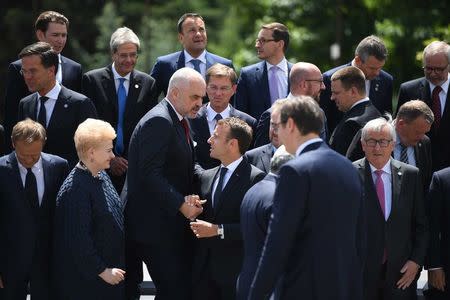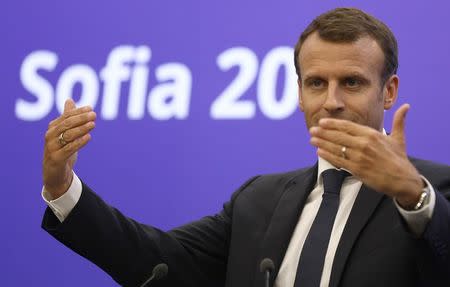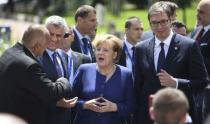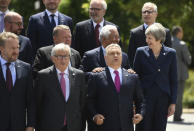EU woos Western Balkans but is coy on membership
By Ivana Sekularac and Gabriela Baczynska
SOFIA (Reuters) - The European Union offered six Western Balkan countries closer ties on Thursday but said they could count on no fast-track to membership - as much because of their regional problems, as well as due to the bloc's own fatigue.
EU leaders met their counterparts from the six - Albania, Bosnia, Serbia, Montenegro, Macedonia and Kosovo - at a summit, agreeing to build more energy links and work more closely on issues from countering radicalism to controlling migration.
"Today we reaffirmed our mutual commitment to the European perspective for the whole region," EU chairman Donald Tusk told a news conference in the Bulgarian capital. "We didn't pretend today that everything is clear and simple."
"I have no doubts that we will also witness in the future many problems," he said, adding that the EU was offering no "unrealistic" fast-track to take the six in.
Tusk was speaking after the first such meeting in 15 years that was meant to demonstrate the bloc's renewed commitment to a region that remains fragile two decades after the ethnic wars that followed the break-up of Yugoslavia.
But, highlighting how long and hard their road to membership is likely to be, Prime Minister Mariano Rajoy of EU member Spain stayed away from the talks since Madrid refuses to recognise the independence of Kosovo.
After years of neglecting the region, the EU has been spurred into action by the growing influence of other powers there, including Russia, China and Saudi Arabia.
The region in 2015-16 also became a main route for a wave of refugees and migrants from the Middle East and Africa heading to wealthier European nations to the north.
With Britain preparing to leave, the bloc's executive European Commission has proposed that EU leaders decide next month to open formal membership negotiations with Albania and Macedonia.
"It is clear that all these countries have a clear accession perspective to the EU," said German Chancellor Angela Merkel, who is a strong supporter of bringing the Western Balkans in. Even she, however, refused to discuss dates.
Many in the EU fear importing Western Balkan problems and feuds, especially at a time when the bloc is still recovering from economic and migration crises that have fuelled euro-scepticism among its own voters.
The shocks of the last decade also made some EU founders question eastern expansion and Western Balkans sceptics point to problems in the region ranging from organised crime in Albania to Macedonia's name dispute with EU state Greece.
"What really matters is the determination of applicants in implementing reforms. And patience because also on the EU side you need to have the right window of opportunity to take the decision," said a senior EU official.
(Additional reporting by Tsvetelia Tsolova, Andreas Rinke and Angel Krasimirov; Writing by Gabriela Baczynska; Editing by Richard Balmforth)










